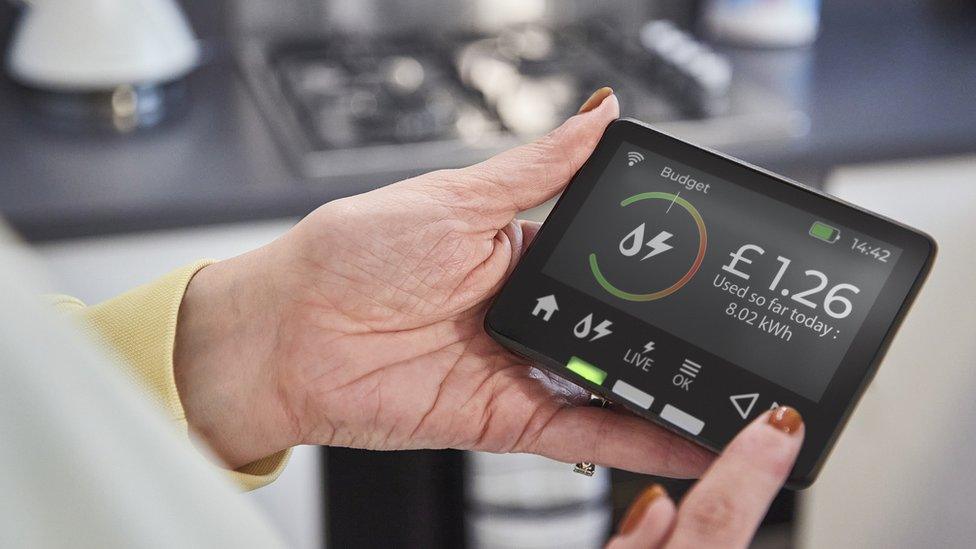Energy price cap will rise in January adding pressure on households
- Published
- comments
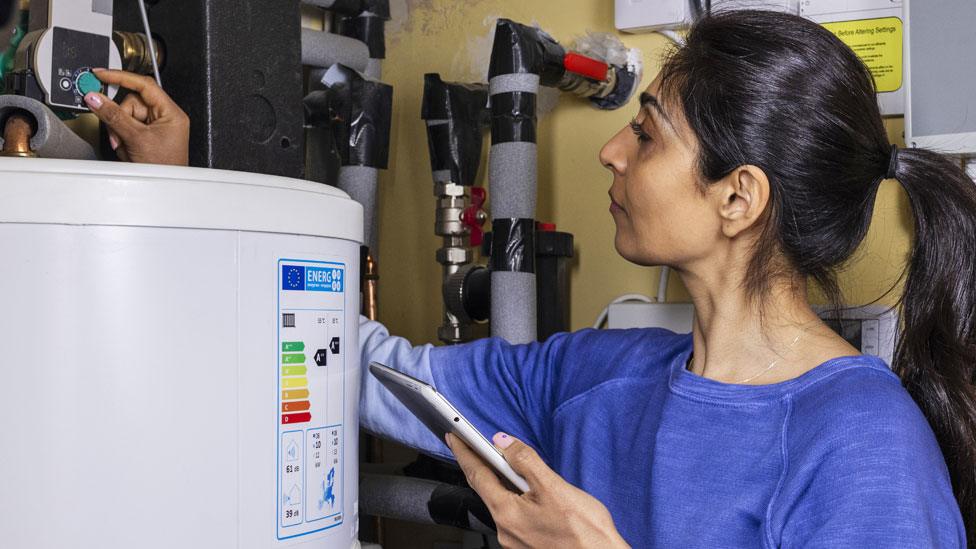
Household energy prices will rise in January putting more financial pressure on billpayers at the coldest time of year.
Energy regulator Ofgem said the typical annual household bill would go up from £1,834 to £1,928, a rise of £94 or 5%.
It said the rise in bills would be "worrying" at a difficult time for many people, but was the result of higher wholesale costs faced by suppliers.
Analysts have predicted that prices will fall back in March.
The announcement comes the day after Chancellor Jeremy Hunt delivered his Autumn Statement.
The regulator's price cap affects 29 million households in England, Wales and Scotland. Rules are different in Northern Ireland. Ofgem sets the maximum amount that suppliers can charge for each unit of gas and electricity but not the total bill, so if you use more, you will pay more.
From January:
the price of gas will be 7p per kilowatt hour (kWh), and electricity will 29p per kWh
households on prepayment meters will see their typical annual bill rise to £1,960
those who pay their bills every three months by cash or cheque will face a typical annual bill of £2,058
standing charges - a fixed daily charge covering the costs of connecting to a supply - will remain unchanged at 53p a day for electricity and 30p a day for gas
Dr Craig Lowrey, principal consultant at energy analysts Cornwall Insight, said a rise in energy bills was "the last thing households need", especially heading into winter.
However, he added, the UK's reliance on foreign energy supplies had left it "vulnerable to price increases caused by events around the globe."
Ofgem chief executive Jonathan Brearley said the regulator had told suppliers "we expect them to identify and offer help to those who are struggling with bills".
For customers such as Roy Bridgewood, a rise in prices will add extra pressure on to the financial difficulties he is already struggling to cope with.
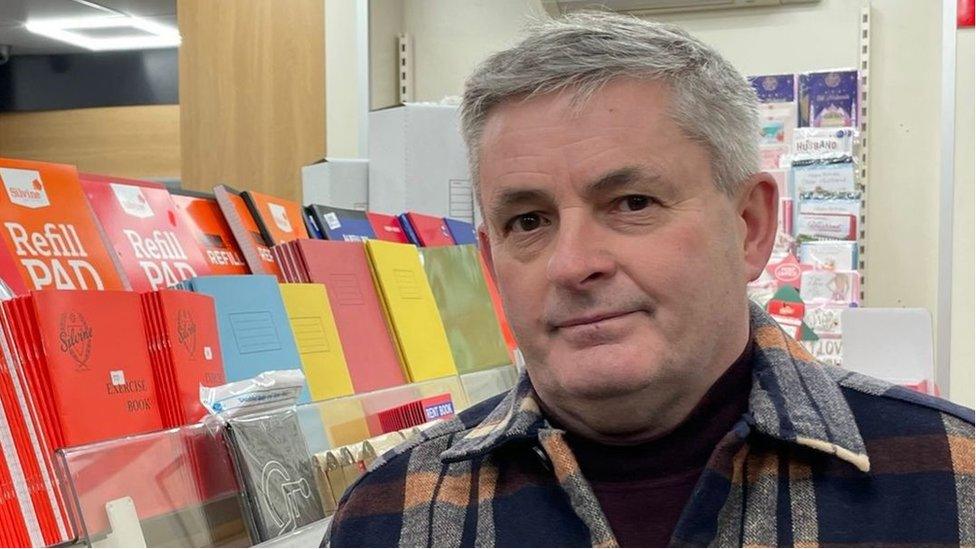
Roy Bridgewood says paying the bills has been tough
Mr Bridgewood, from Manchester, is about £1,400 in debt on his gas and electricity bills.
"The last payment I made on the gas was about £800. It was every penny I had left in my savings," he said.
He has been out of work for a year and has two teenage children at home.
"I'm struggling to get work, struggling to pay bills and struggling to live. You feel vulnerable," he said.
Experts say he is sensibly trying to pay what he can, and is being open with his supplier.
Your device may not support this calculator
Time to look at fixed deals?
The vast majority of people pay by direct debit, with payments smoothed out over the year.
Billpayers may consider a greater range of fixed deals on the market, although the regulator sounded a note of caution when shopping around.
"People should weigh up all the information, seek independent advice from trusted sources and consider what is most important for them whether that's the lowest price or the security of a fixed deal," Mr Brearley said.
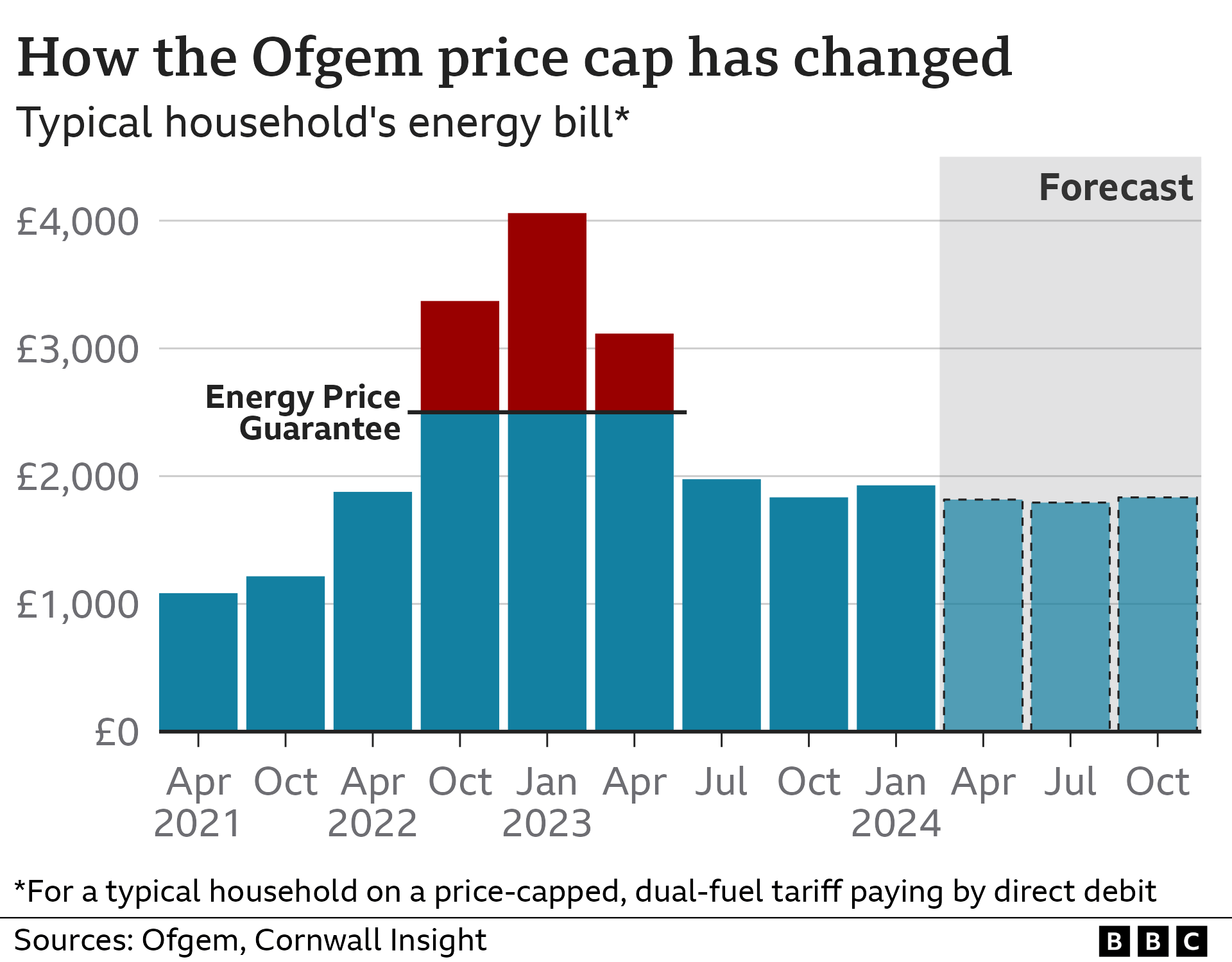
The freezing of the cost of standing charges comes amid rising anger about increasing fees and customers' inability to reduce what they pay.
Charges vary depending on where customers live, but the amount of energy that they use is irrelevant for this part of a household bill. In most areas, the charge has doubled over the last two years.
Ofgem recently launched a review of these charges and asked for views from the public.
The regulator is consulting on whether to raise the charges by £20 a year for direct debit customers, to cancel the gap in bills compared with prepayment meter customers.
Support withdrawn
Last winter, overall energy prices were high and rises would have been bigger had it not been for the government's Energy Price Guarantee limiting the typical bill to £2,500.
Each household also received £400 of support over six months, but this year the government has not announced any equivalent scheme.
The Chancellor, Jeremy Hunt, told the BBC that he understood that "lots of households are struggling", and pointed to rises in pensions and benefits announced in the Autumn Statement that would help pay energy bills.
However, he would not be drawn on whether further direct support would be provided.
Gillian Cooper, director of energy at Citizens Advice, said the government had missed an opportunity to increase support for households "who desperately need it this winter".
The latest figures from Ofgem show customers are in debt to suppliers by a total of £2.6bn.
A typical household energy bill fell by £240 a year in October to £1,834 a year but, of that, £89 was not an actual drop in the price you pay, but actually the result of a new estimate of the typical amount of gas and electricity used by households. Had the calculation not been amended, the fall would have been £151 a year.
Typical annual household consumption is now estimated to be 2,700 kWh a year for electricity, and 11,500 kWh a year for gas.

How will the energy price cap rise affect you? Get in touch.
WhatsApp: +44 7756 165803, external
Tweet: @BBC_HaveYourSay, external
Please read our terms & conditions and privacy policy


What can I do if I can't afford my energy bill?
Check your direct debit: Your monthly payment is based on your estimated energy use for the year. Your supplier can reduce your bill if your actual use is less than the estimation.
Pay what you can: If you can't meet your direct debit or quarterly payments, ask your supplier for an "able to pay plan" based on what you can afford.
Claim what you are entitled to: Check you are claiming all the benefits you can. The independent MoneyHelper, external website has a useful guide.

Related topics
- Published3 January 2024

- Published3 April 2024
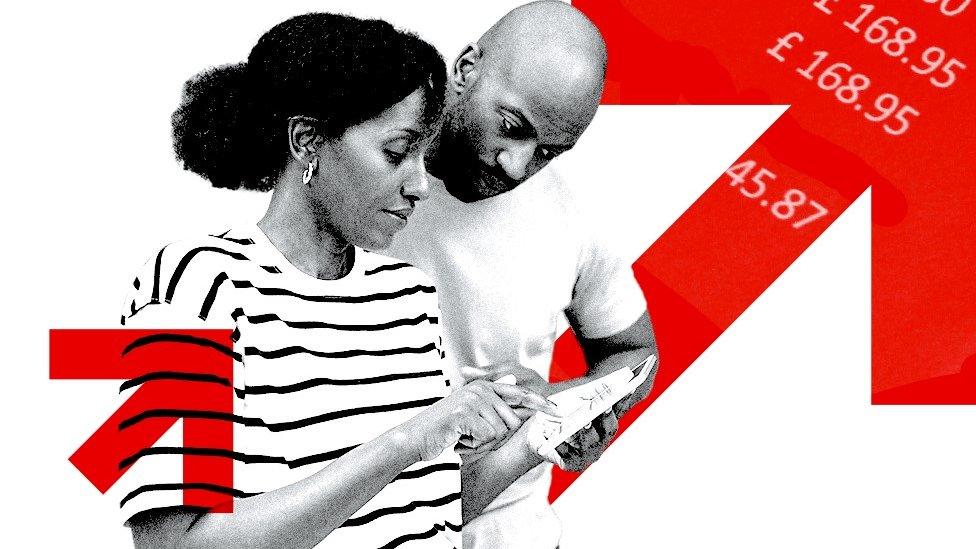
- Published15 February 2024
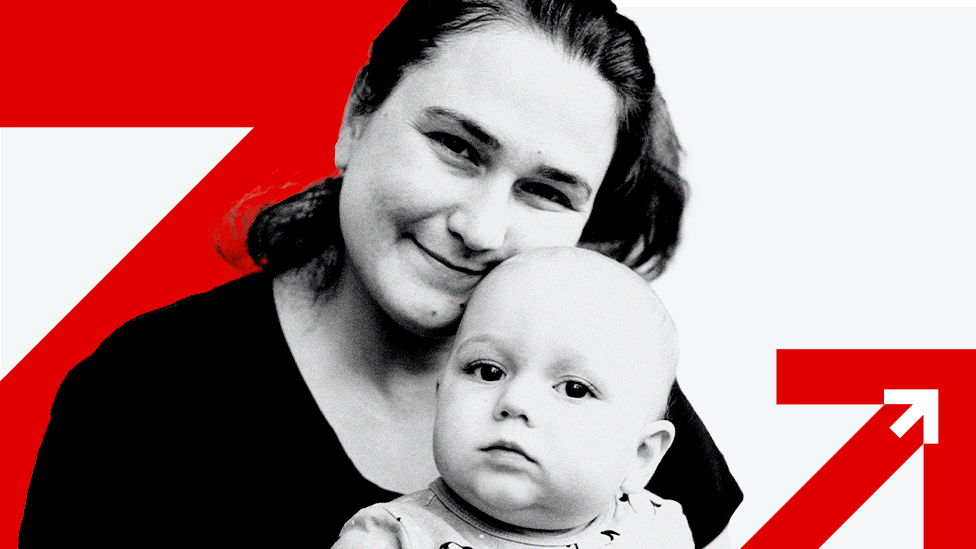
- Published2 November 2023
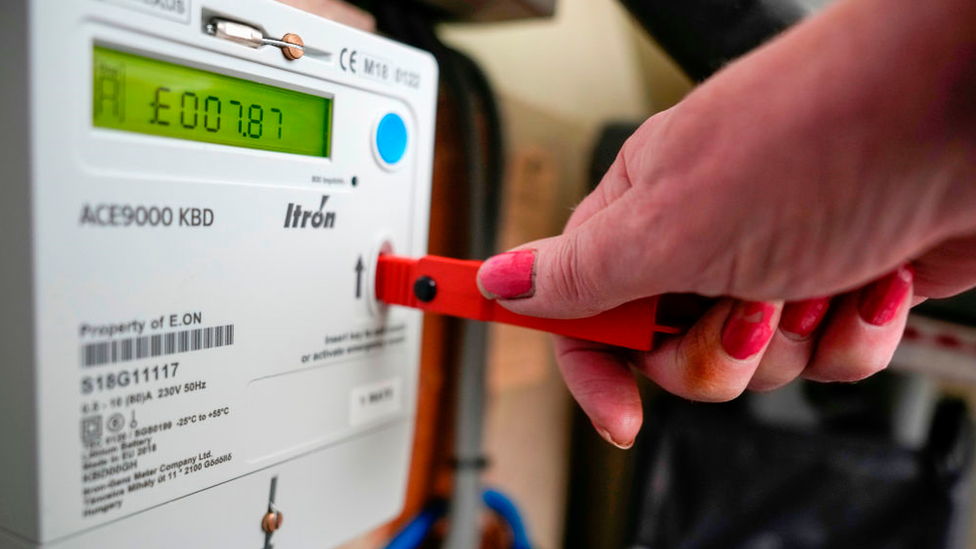
- Published1 November 2023
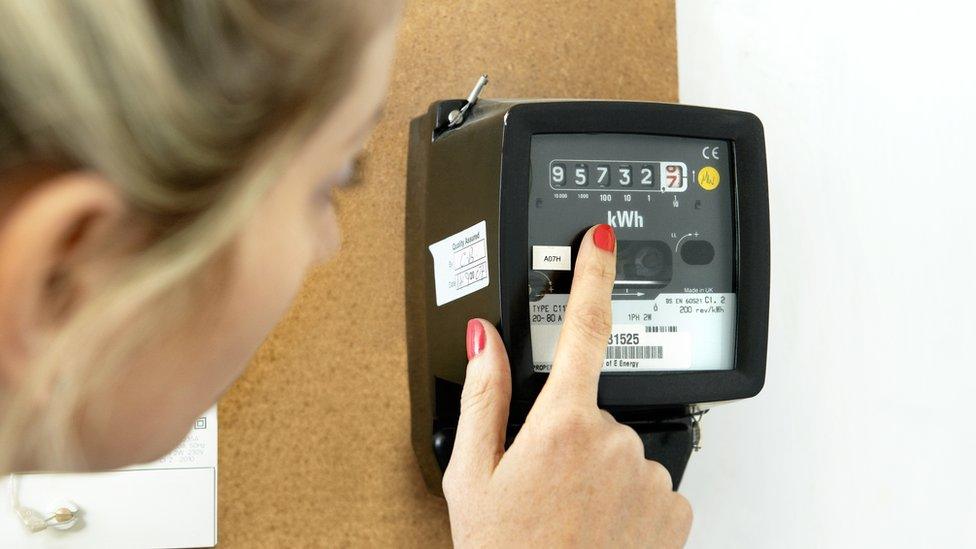
- Published16 November 2023
